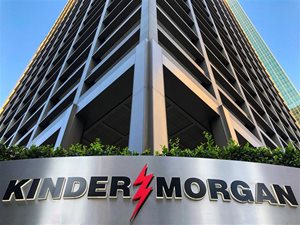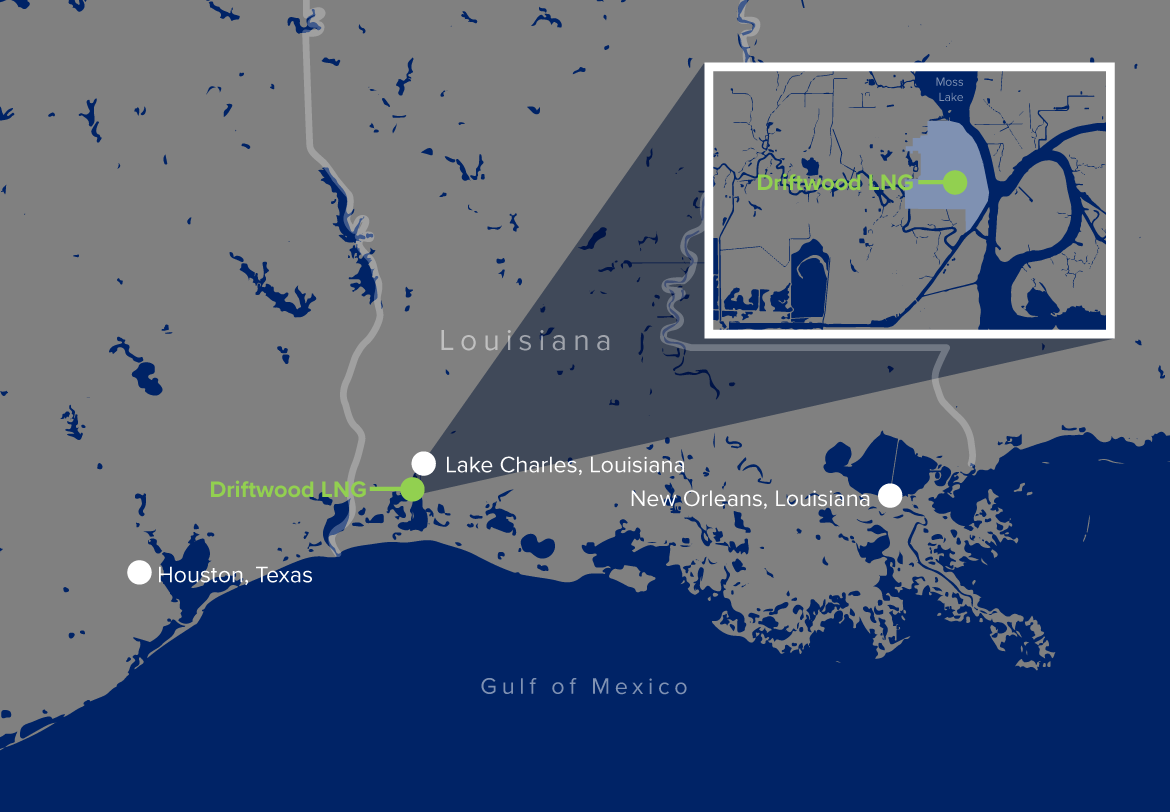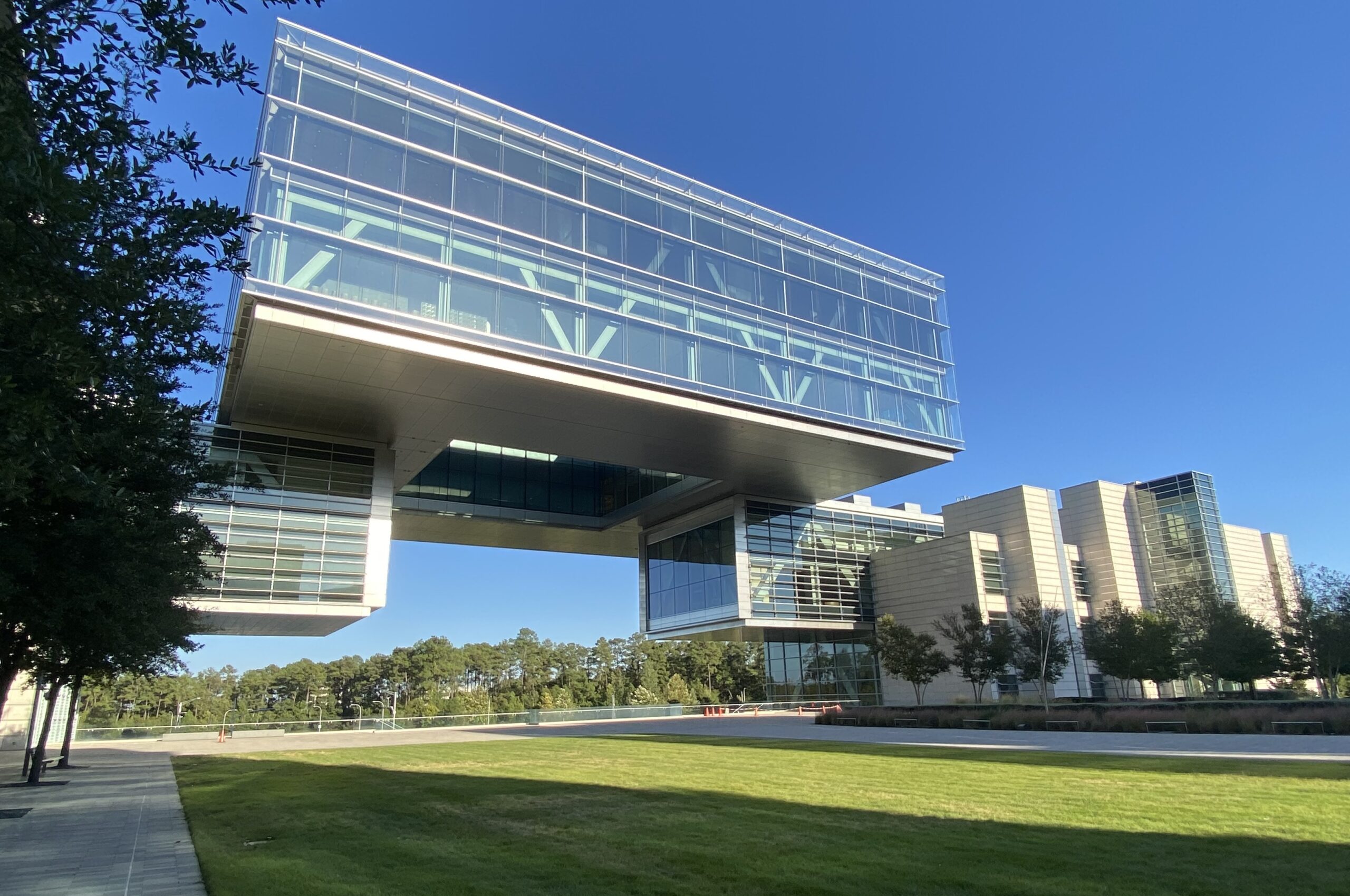(Kinder Morgan, 17.Jul.2024) — Kinder Morgan, Inc.’s board of directors today approved a cash dividend of $0.2875 per share for the second quarter ($1.15 annualized), payable on 15 Aug. 2024 to stockholders of record as of the close of business on 31 July 2024. This dividend is a 2% increase over the second quarter of 2023.
The company is reporting:
— Second quarter earnings per share (EPS) of $0.26 and distributable cash flow (DCF) per share of $0.49, flat and up 2%, respectively, compared to the second quarter of 2023.
— Net income attributable to KMI of $575mn, compared to $586mn in the second quarter of 2023.
— DCF of $1,100mn for the quarter, compared to $1,076mn in the second quarter of 2023.
“In the second quarter we enjoyed another solid quarter of strong operational and financial performance. We continued to internally fund high-quality capital projects while generating cash flow from operations of $1.7bn and $1.1bn in free cash flow (FCF) after capital expenditures. In addition, we were pleased to welcome Amy Chronis to her first KMI board of directors meeting. I am thrilled to have Amy join our talented board as we look forward to gaining the benefit of her financial acumen and robust knowledge of the energy industry,” said Executive Chairman Richard D. Kinder.
“As a leader in the midstream sector with an extensive, interconnected network of fee-based assets in the energy infrastructure space, we are proud to play a significant role in maintaining energy security for the United States. Furthermore, through our large and growing support to the liquified natural gas (LNG) sector, including our own export facility at Elba Island, we are also playing a key role in providing energy security to countries around the world,” Kinder concluded.
“The company had a solid second quarter on increased financial contributions from our Natural Gas Pipelines, Products Pipelines and Terminals business segments, with Adjusted EBITDA up 3% versus the second quarter of 2023,” said Chief Executive Officer Kim Dang.
“KMI’s balance sheet remains very strong, as we ended the quarter with a Net Debt-to-Adjusted EBITDA ratio of 4.1 times,” continued Dang.
“Notwithstanding the current low-price environment for natural gas, the future looks very bright for our Natural Gas Pipelines business segment. As I noted last quarter, we expect demand for natural gas to grow substantially between now and 2030, led by more than a doubling of demand for LNG exports and an almost 50% increase in natural gas exports to Mexico. We are also anticipating significant new natural gas demand for electric generation associated with artificial intelligence operations, cryptocurrency mining, data centers and industrial re-shoring, which would be additive to the growth discussed above,” continued Dang. “One example of opportunities to meet this demand growth is our announcement today of a successful binding open season on the proposed South System Expansion 4 Project designed to increase Southern Natural Gas (SNG) Pipeline’s South Line capacity by approximately 1.2 billion cubic feet per day (Bcf/d). Once completed following receipt of all required approvals, the project will help meet growing power generation and local distribution company demand in the Southeast markets.
“Our project backlog at the end of the second quarter was $5.2bn, up from $3.3bn in the first quarter of 2024. In calculating backlog Project EBITDA multiples, we exclude both the capital and EBITDA from our CO2 enhanced oil recovery projects and our gathering and processing (G&P) projects, where the earnings are more uneven than with our other business segments. To compensate for those uneven earnings profiles, we require higher return thresholds for those projects. We expect the remaining $3.8bn of projects in the backlog to generate an average Project EBITDA multiple of approximately 5.4 times.
“We are devoting approximately 80% of our project backlog to lower-carbon energy investments, including conventional natural gas, renewable natural gas (RNG), renewable diesel (RD), feedstocks associated with RD and sustainable aviation fuel (SAF), as well as carbon capture and sequestration,” Dang concluded.
2024 Outlook
For 2024, including contributions from the acquired STX Midstream assets, KMI budgeted net income attributable to KMI of $2.7bn ($1.22 per share), up 15% versus 2023, and expects to declare dividends of $1.15 per share for 2024, a 2% increase from the dividends declared for 2023. The company also budgeted 2024 DCF of $5bn ($2.26 per share), and Adjusted EBITDA of $8.16bn, both up 8% versus 2023, and to end 2024 with a Net Debt-to-Adjusted EBITDA ratio of 3.9 times.
The budget assumes average annual prices for West Texas Intermediate (WTI) crude oil and Henry Hub natural gas of $82 per barrel and $3.50 per million British thermal unit (MMBtu), respectively, consistent with the published forward curve available during the company’s annual budget process.
“We expect to be roughly in-line with our budget for the full year (on budget or within 1-2% below). Lower than budgeted commodity prices, winter weather impacts and start-up delays on our RNG facilities as well as lower G&P volumes are expected to be offset or mostly offset by better than budgeted natural gas transport and storage contributions, better than expected contributions from our Terminals segment, and lower pension costs,” said Dang.
This press release includes Adjusted Net income attributable to KMI and DCF, in each case in the aggregate and per share, Adjusted Segment EBDA, Adjusted EBITDA, Net Debt, FCF, and Project EBITDA, all of which are non-GAAP financial measures. For descriptions of these non-GAAP financial measures and reconciliations to the most comparable measures prepared in accordance with generally accepted accounting principles, please see “Non-GAAP Financial Measures” and the tables accompanying our preliminary financial statements.
Overview of Business Segments
“The Natural Gas Pipelines business segment’s financial performance in the second quarter of 2024 relative to the second quarter of 2023 benefited from higher contributions from our Texas Intrastate system as well as additional contributions from our STX Midstream acquisition, partially offset by lower contributions from our gathering systems due to asset divestitures and lower commodity prices,” said KMI President Tom Martin.
“Natural gas transport volumes were up slightly compared to the second quarter of 2023. Natural gas gathering volumes were up 10% from the second quarter of 2023, primarily from our Haynesville and Eagle Ford gathering systems.
“Contributions from the Products Pipelines business segment were up compared to the second quarter of 2023 due to higher rates on existing assets and contributions from new capital projects. Total refined products volumes were up slightly and crude and condensate volumes were flat compared to the second quarter of 2023,” Martin said.
“Terminals business segment earnings were up compared to the second quarter of 2023. Our liquids terminals benefited from expansion projects placed in-service as well as higher rates and utilization at our New York Harbor hub facilities. Our bulk business benefited from increased coal, petroleum coke and soda ash volumes. Higher rates on our Jones Act tankers, which remain fully contracted under term charter agreements, also contributed to the segment’s performance for the quarter,” continued Martin.
“CO2 business segment earnings, excluding the gain from a divestiture, were down compared to the second quarter of 2023, due to lower crude volumes, CO2 sales, and NGL volumes, down 13%, 8%, and 17% respectively, on a net-to-KMI basis compared to the second quarter of 2023. Crude volumes were down partially due to timing of the recovery of production at SACROC after an outage in 2023. Year-to-date crude volumes were down 8%. Price movements across the segment’s three primary commodities netted out positively for the quarter versus the second quarter of 2023. The segment benefited from increased contributions from the Wink Pipeline, primarily due to a refinery outage in 2023. KMI’s ETV contributions were higher due to RNG facilities being placed in service after the second quarter of 2023,” said Martin.
Other News
Corporate
— KMI is moving from an annual to a biennial in-person investor day presentation. Therefore, there will be no in-person investor day presentation in 2025 but the company expects to hold one in the first quarter of 2026. KMI will continue to release its detailed annual budget early in the first quarter of each year, consistent with prior practice.
Natural Gas Pipelines
— SNG held a successful binding open season on the proposed South System Expansion 4 (SSE4) Project designed to increase SNG’s South Line capacity by approximately 1.2 Bcf/d. Upon completion, the approximately $3bn project will help meet growing power generation and local distribution company demand in the Southeast markets. SSE4 will be almost entirely comprised of brownfield looping and horsepower compression additions on the SNG and Elba Express pipeline systems. Subject to all required approvals, KMI expects the project to be in service beginning in late 2028.
— In early July, the company executed definitive agreements necessary to proceed with its approximately $263 million Altamont Green River Pipeline project. This project will provide additional natural gas egress to relieve existing production constraints in the Uinta Basin. The Green River Pipeline will consist of approximately 43 miles of 20-inch pipeline and associated compression, providing approximately 150 million cubic feet per day (MMcf/d) of capacity from the basin to the Western Chipeta processing plant. Interim facilities will be constructed for immediate natural gas takeaway until the new pipeline is in service, projected for mid-2025.
— Construction activities are well underway for the Kinder Morgan Tejas Pipeline’s (Tejas) approximately $94mn South Texas to Houston Market expansion project. The project will add compression on Tejas’ mainline to increase natural gas deliveries by approximately 350 MMcf/d to Houston markets. The target in-service date is the first quarter of 2025.
— Construction is ongoing on an approximately $168mn expansion of the Kinder Morgan Texas Pipeline (KMTP) system to provide transportation and treating services to lean gas Eagle Ford producers in Webb County. The expansion project, supported by a long-term contract, is designed to deliver up to 400 MMcf/d of Eagle Ford natural gas supply into the company’s Texas Intrastate network. The project is currently on track to be placed in service in Nov. 2024.
— The first phase of the $670mn Evangeline Pass project was placed in service on 1 July 2024. Construction continues on the second phase of the project, which has an expected in-service date of 1 July 2025. The two-phase project involves modifications and enhancements to portions of the Tennessee Gas Pipeline (TGP) and Southern Natural Gas (SNG) systems in Mississippi and Louisiana, which will result in the delivery of approximately 2 Bcf/d of natural gas to Venture Global’s Plaquemines LNG facility.
Terminals
— Construction activities continue on KMI’s latest expansion of its industry-leading RD and SAF feedstock storage and logistics offering at its lower Mississippi River hub. The scope of work at its Geismar River Terminal in Geismar, Louisiana includes construction of multiple tanks totaling approximately 250,000 barrels of heated storage capacity as well as various marine, rail and pipeline infrastructure improvements. The approximately $54mn Geismar River Terminal project, which is supported by a long-term commercial commitment, is expected to be in service by the fourth quarter of 2024.
Products
— With definitive agreements signed, the company plans to convert its Double H Pipeline system from crude oil to natural gas liquids (NGL) service, providing Williston Basin producers and midstream companies with pipeline capacity to key market hubs. The approximately $150mn project is anticipated to be in service in the first quarter of 2026. The pipe will remain in crude service well into 2025 and shippers will be notified in advance of it going out of crude service. Future phases could provide incremental pipeline capacity, including out of the Powder River Basin.
— With the completion of KMI’s Southern California RD hub and phase 2 of its Northern California RD hub, the company is scoping a phase 3 expansion at its Northern California RD hub. This expansion will involve commencing RD service to Chico and Sacramento and expanding RD service to multiple locations including Fresno, San Jose, Colton and Mission Valley, while adding between 10,000 and 20,000 barrels per day (Bbl/d) of incremental RD capacity across those locations. In-service dates will depend on permit requirements and customer support.
— On 10 June 2024, SFPP, L.P., a subsidiary of KMI, launched an open season for up to 10,000 Bbl/d of additional capacity on its East Line system for transportation service from El Paso, Texas to Tucson, Arizona. Interested customers will be able to make take-or-pay volume commitments for Mexican grade diesel as well as domestic grade products (gasoline, diesel and jet fuel). The open season is scheduled to run through 9 Aug. 2024.
CO2
— During the quarter, Kinder Morgan CO2 optimized its asset portfolio through two transactions in the Permian Basin for a net outlay of approximately $40mn. The segment divested its interests in the Katz Unit, Goldsmith Landreth San Andres Unit, Tall Cotton Field and Reinecke Unit, along with certain shallow interests in the Diamond M Field and acquired AVAD Energy Partners’ interest in the North McElroy Unit (NMU) and a leasehold interest in an undeveloped leasehold directly adjacent to SACROC. NMU is an existing waterflood that currently produces approximately 1,250 Bbl/d of crude oil. Kinder Morgan’s analysis suggests that NMU could be an excellent candidate for CO2 flooding. The impact of these two transactions is to replace fields with high production decline rates and limited CO2 flood opportunities with fields that have attractive potential CO2 flood projects.
Energy Transition Ventures
— Construction is nearly complete on the previously announced conversion of the Autumn Hills, Michigan landfill gas-to-electric facility to an RNG facility. The RNG facility is expected to be placed in service in the fourth quarter of 2024 with a capacity of 0.8 Bcf of RNG annually. Once complete and in service, this additional facility will bring KMI’s total RNG generation capacity to 6.9 Bcf per year.
____________________


